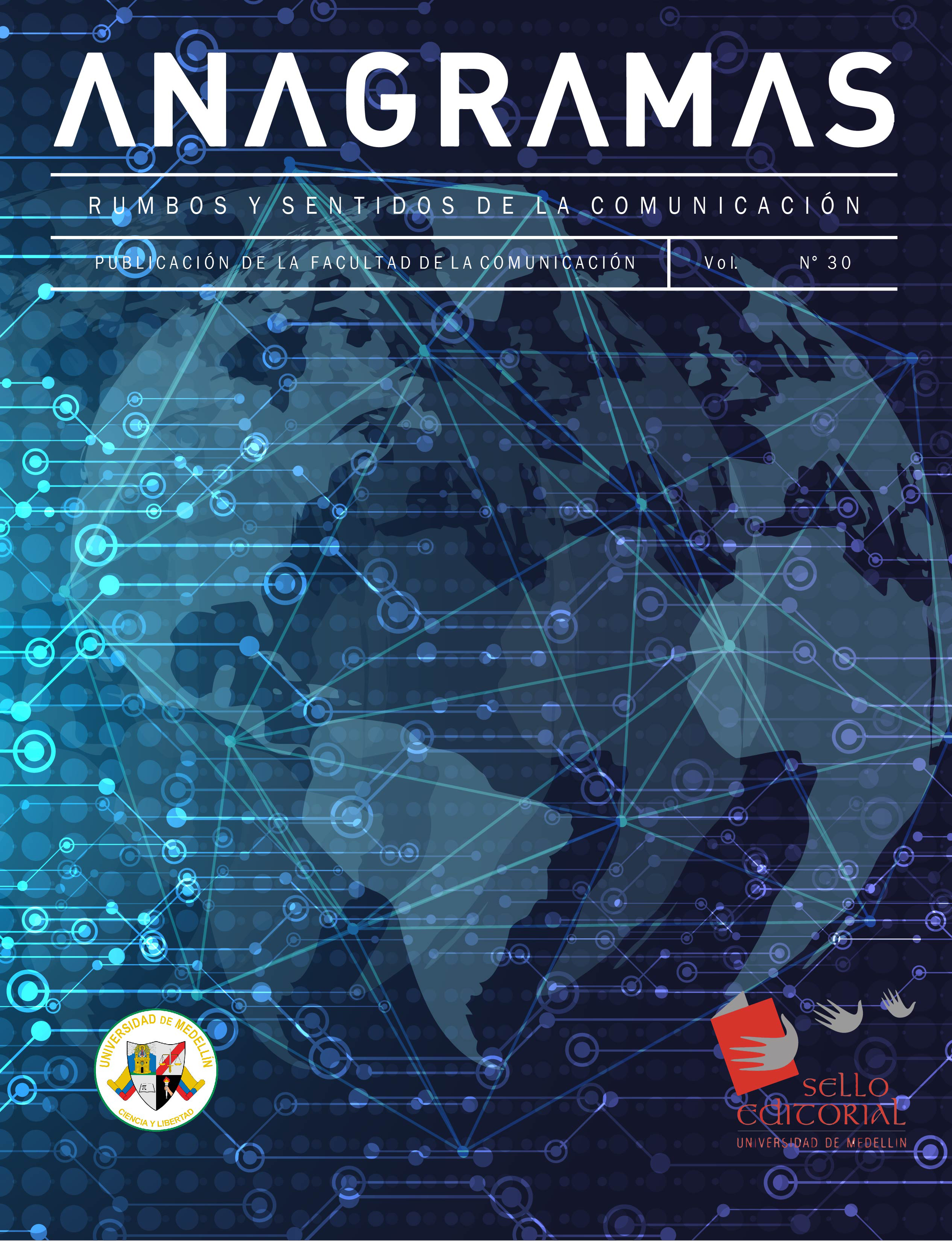Motivation for the Search for Digital Health Information by a Quilombola Community
Main Article Content
Abstract
With a qualitative inductive study operated by the method of grounded theory (GT), observing the Uses and Gratifications framework for the consumption of digital platforms, we seek in this article to present empirical findings about the reasons that contribute to the search and consumption of information digital health, by Quilombola remnants of the Bairro Porto D’Áreia community, municipality of Estância, Sergipe. Here, we describe a clipping focused on the perspective of the motivation 'caring for oneself and for the other', in which we privilege the description of the need to understand information that identifies and diagnoses symptoms, origin of diseases, therapies, and medicines, and that encourages 'taken decision-making about selfcare and the health of those closest to you'. With twelve in-depth interviews carried out, we report here the experiences of this group, which survives on the fringes of structures such as basic sanitation, balanced nutrition, areas of sports, education, culture, and hospital medical care. These subjects demand health care and maintain contact with digital technologies, so it is necessary to understand how they deal with and decide on health from this source of information. In this area, here we unveil the main experiences reported, motivations based on the subjects’ respective ability to choose, since the structuring conditions of the community end up modulating their daily practices regarding health. As a result, we observed among the interviewees that the search for self-care is related to self-diagnosis, medication use, adoption of treatments and preventive care practices for the elderly and children.
Article Details
References
Ala-Mutka, K. (2011). Mapping Digital Competence: Towards a Conceptual Understanding. JRC Technical Notes. Retrieved October 2, 2020, from http://www.dctest.org/uploads/6/8/7/0/68701431/jrc67075_tn.pdf
Benigeri, M. (2003). Shortcomings of health information on the Internet. Health Promotion International, 18(4), 381-386. https://doi.org/10.1093/heapro/dag409
Bessell, T. L. (2003). Surfing, self-medicating and safety: buying non-prescription and complementary medicines via the internet. Quality and Safety in Health Care, 12(2), 88-92. https://doi.org/10.1136/qhc.12.2.88
Boyer, E. W., Shannon, M., & Hibberd, P. L. (2005). The Internet and Psychoactive Substance Use Among Innovative Drug Users. Pediatrics, 115(2), 302-305. https://doi.org/10.1542/peds.2004-1199
Carvalho, A. I. (2013). Determinantes sociais, econômicos e ambientais da saúde. In Fundação Oswaldo Cruz. A saúde no Brasil em 2030 - prospecção estratégica do sistema de saúde brasileiro: população e perfil sanitário (Vol. 2). Fiocruz/Ipea/Ministério da Saúde/Secretaria de Assuntos Estratégicos da Presidência da República. https://saudeamanha.fiocruz.br/wp-content/uploads/2016/07/11.pdf
Castiel, L. D., e Vasconcellos-Silva, P. R. (2002). Internet e o autocuidado em saúde: como juntar os trapinhos? História, Ciências, Saúde-Manguinhos, 9(2), 291-314. https://doi.org/10.1590/s0104-59702002000200004
Cline, R. J. W. (2001). Consumer health information seeking on the Internet: the state of the art. Health Education Research, 16(6), 671-692. https://doi.org/10.1093/her/16.6.671
Cotten, S. R., e Gupta, S. S. (2004). Characteristics of online and offline health information seekers and factors that discriminate between them. Social Science & Medicine, 59(9), 1795-1806. https://doi.org/10.1016/j.socscimed.2004.02.020
Demiris, G. (2016). Consumer Health Informatics: Past, Present, and Future of a Rapidly Evolving Domain. Yearbook of Medical Informatics, 25(S 01), S42-S47. https://doi.org/10.15265/iys2016-s005
Eysenbach, G., Powell, J., Kuss, O., e Sa, E. R. (2002). Empirical Studies Assessing the Quality of Health Information for Consumers on the World Wide Web. JAMA, 287(20), 2691-2700. https://doi.org/10.1001/jama.287.20.2691
Ferreira, R. M. C. (2010). A experiência da audiência das telenovelas em Portugal: um modelo a partir da teoria fundamentada em dados [Dissertação de Mestrado, Universidade Nova]. Repositório Institucional da Universidade Federal de Sergipe. https://ri.ufs.br/bitstream/riufs/8710/2/RAQUEL_MARQUES_CARRICO_FERREIRA.pdf
Fox, N., Ward, K., e O’Rourke, A. (2005). The ‘expert patient’: empowerment or medical dominance? The case of weight loss, pharmaceutical drugs and the Internet. Social Science & Medicine, 60(6), 1299-1309. https://doi.org/10.1016/j.socscimed.2004.07.005
Grierson, T., van Dijk, M. W., Dozois, E., e Mascher, J. (2006). Using the Internet to Build Community Capacity for Healthy Public Policy. Health Promotion Practice, 7(1), 13-22. https://doi.org/10.1177/1524839905278590
Hardey, M. (1999). Doctor in the house: the Internet as a source of lay health knowledge and the challenge to expertise. Sociology of Health & Illness, 21(6), 820-835. https://doi.org/10.1111/1467-9566.00185
Hardey, M. (2002). 'The story of my illness': personal accounts of illness on the Internet. Health, 6(1), 31-46. https://doi.org/10.1177/1363459302006001443
Huh, J., DeLorme, D. E., e Reid, L. N. (2005). Factors Affecting Trust in On-line Prescription Drug Information and Impact of Trust on Behavior Following Exposure to DTC Advertising. Journal of Health Communication, 10(8), 711-731. https://doi.org/10.1080/10810730500326716
Korp, P. (2006). Health on the Internet: implications for health promotion. Health Education Research, 21(1), 78-86. https://doi.org/10.1093/her/cyh043
Organização Mundial da Saúde (2003). Cuidados inovadores para condições crônicas: componentes estruturais de ação.
Orem, D. E. (2001). Nursing: Concepts of practice (6th ed.). Mosby
Petronilho, F. A. S. (2012). Autocuidado: conceito central da enfermagem. Da conceptualização aos dados empíricos através de uma revisão da literatura dos últimos 20 anos. Formasau.
Roberto, M. S., Fidalgo, A., e Buckingham, D. (2015). De que falamos quando falamos de infoexclusão e literacia digital? Perspectivas dos nativos digitais. SciELO Portugal, 9(1), 43-54.
Santos, L., e Andrade, L. O. M. D. (2012). Acesso à s ações e aos serviços de saúde: uma visão polissêmica. Ciência & Saúde Coletiva, 17(11), 2876-2878. https://doi.org/10.1590/s1413-81232012001100003
Silva, E. V. e Castro, L. L. C. (2010). A internet como forma interativa de busca de informação sobre saúde pelo paciente. CORE. https://core.ac.uk/download/pdf/33543502.pdf
Soares, M. C. (2004). Internet e saúde: possibilidades e limitações. Revista Textos de La CiberSociedad, 1(1). http://www.cibersociedad.net/textos/articulo.php?art=51
Strauss, A., & Corbin, J. (2008). Pesquisa qualitativa: técnicas e procedimentos para o desenvolvimento de teoria fundamentada. Artmed.
Zarcadoolas, C., Pleasant, A., & Greer, D. S. (2006). Advancing Health Literacy: A Framework for Understanding and Action (1st ed.). Jossey-Bass.
Ziebland, S., Chapple, A., Dumelow, C., Evans, J., Prinjha, S., e Rozmovits, L. (2004). How the internet affects patients’ experience of cancer: a qualitative study. BMJ, 328(7439), 564-569. https://doi.org/10.1136/bmj.328.7439.564





